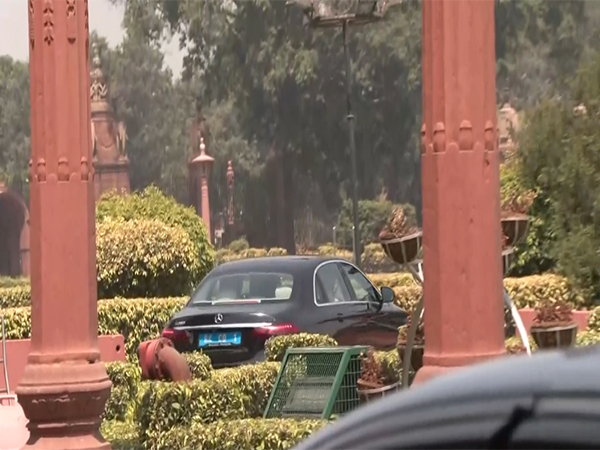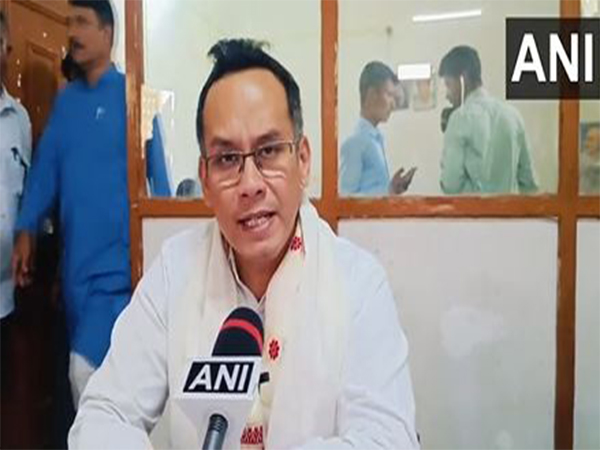Despite China banter, Czech Senate President undertakes 6-day visit to Taiwan
Aug 31, 2020

Taipei [Taiwan], August 31 : In a significant development, a delegation led by Czech Senate President Milos Vystrcil embarked on a six-day visit to Taiwan, despite China's criticism regarding the visit.
Vystrcil is on an official trip to Taiwan, which began on Sunday to promote business links and the visit marks the highest-level of exchange between the two countries to boost economic and cultural ties, Voice of America (VOA) reported.
Although the Czech Republic follows the one-China policy, it, however, maintains unofficial relations with Taiwan, which Beijing regards as its renegade province.
The Czech Senate President's visit even as China's "coercive diplomacy" in the European country is failing, according to observers, although it is yet to be seen whether other European nations would follow suit.
"This will be a trip to honour the spirits of late Czech President Vaclav Havel," Vystrcil told the 89-member delegation ahead of the visit, according to Taiwan's Ministry of Foreign Affairs.
Havel, who was formerly a playwright, became the first Czech president in 1993. He was in prison for several years over his dissenting political views on civil activism, direct democracy and human rights -- values which Vystrcil said China does not believe in.
"My view is that if we focus on money, we will lose our values and the money, too," said Vystrcil, who is the second-highest official in the Czech Republic.
Taiwan President Tsai Ing-wen extended her warm greetings to the delegation, saying that the people in Taiwan "look forward to furthering cooperation in all areas" with the visiting delegation in her Facebook post, according to VOA.
In response, Chinese Foreign Ministry spokesperson had termed Vystrcil's visit as "despicable conduct".
On Sunday, China's state-run Global Times cited the Chinese Embassy in Czech Republic saying that Vystrcil made the visit "based on his own political calculation", thereby interfering in China's internal matters and violating the one-China policy, which says that the People's Republic of China (PRC) is the sole legitimate government in the whole of China.
"In my opinion, I think he (Vystrcil) wants to send a very strong message to China that Czech Republic is a free and democratic country and we do not like any country, no matter it is China or some small countries to tell us what we should do," said Karel Picha, a Czech who has lived in Taiwan for eight years and currently runs the only Czech cuisine restaurant in Taipei.
"We do not like any country to blackmail us by (saying), if you are gonna go to Taiwan, it will hurt you. So, it is a very strong statement to say that everything is not only about money," he told VOA, while noting that most Czech people support the visit.
Earlier today, China continued to issue negative and provocative comments regarding Vystrcil's visit to the Czech Republic, saying those who oppose the one-China policy will "pay a heavy price" for their moves.
"Those who attempt to challenge the one-China principle on the Taiwan question are making themselves enemies of the 1.4 billion Chinese people and will have to pay a heavy price for their moves," Chinese Foreign Minister Wang Yi was quoted as saying by CGTN.
This is not the first that Czech Republic has challenged the one-China policy.
In October last year, Beijing and Prague terminated their three-year-old twinning deal after the Czech capital unilaterally backed out of a clause on the one-China principle with several officials making "erroneous moves and inappropriate remarks" on issues like Taiwan and Tibet. After a few months, Shanghai also scrapped its sister-city relationship with Prague.
Disagreement on the agreement took place following the November 2018 municipal polls, which saw Zdenek Hrib from the Czech Pirate Party being elected as the new Prague mayor. Hrib called for amendments to the Beijing-Prague sister-city deal, suggesting the exclusion of the clause acknowledging the one-China principle, according to CGTN.




















